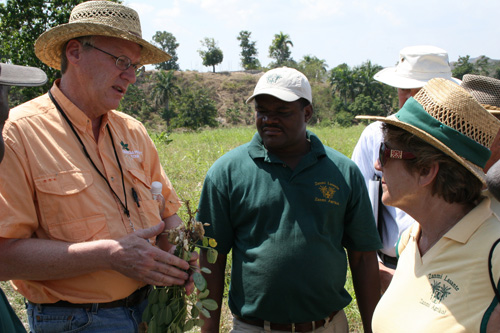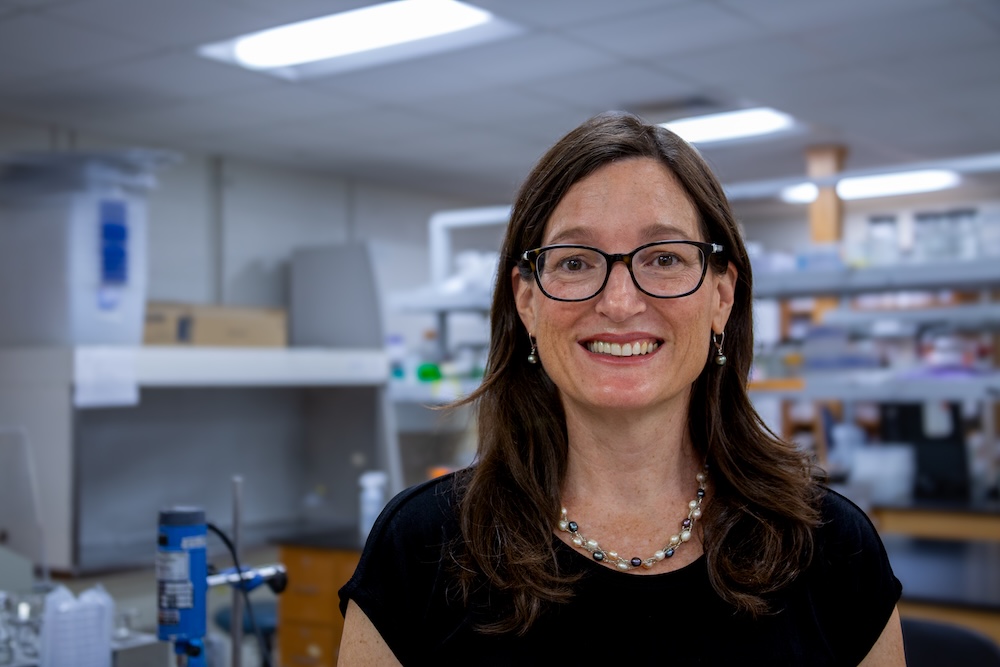Soon after the Jan. 12, 2010 earthquake shocked Haiti, crumbling its capitol and killing an estimated 250,000 people, a team of experts from the University of Georgia College of Agricultural and Environmental Sciences traveled there to assess how the college could help foster sustainable agriculture.
Next month, a team of CAES farm and technology experts will return to install a web-based system to connect Haitian farmers with UGA agricultural experts. They aim to continue helping farmers grow more, higher-quality crops in the impoverished Caribbean country.
Graham Huff, executive director of the Atlanta-based League of Hope, initiated and funded the first trip. Ed Kanemasu, CAES director of global programs, led the team.
“We decided that we could make the biggest impact by developing a technical-assistance team to address agricultural questions asked by some of the thousand or so (non-governmental organizations) and the producer groups in Haiti,” Kanemasu said.
That assistance will come in the form of laboratories equipped with a technology called Distance Diagnostics through Digital Imaging, or DDDI.
DDDI
The UGA Consortium for Internet Imaging and Database Systems developed and hosts DDDI systems for a dozen U.S. land-grant universities, including CAES. Honduras became the first international client in 2005.
The DDDI system includes a dissecting scope, a compound microscope, a camera that mounts on either microscope, a digital camera for field use, a computer and software. Almost every county in Georgia is equipped with the system. Over the past decade, UGA Cooperative Extension agents have submitted more than 23,000 samples through the system to quickly diagnose insect and disease problems.
“The (Haitian) stations provide access to a wide network of U.S.-based experts in many aspects of agriculture with the hope to rapidly increase crop yields in Haiti so that Haitians are enabled to feed themselves once again,” Huff said.
Haiti hunger
Statistical numbers vary, but most Haitians live on less than $2 a day. One in five children suffers severe malnutrition, but many more don’t get the proper nourishment needed for healthy immune systems. Disease is widespread. Life expectancy is just over 50 years. Haitian farmers produce only half of the food the country needs annually.
The first DDDI system will be installed next month near Cange in partnership with Zanmi Agricol, the agricultural arm of the Boston-based Partners in Health. The group has provided extensive medical care for Haitians for 25 years. Later this year, a second system will be installed at the University of Limbe near Cap-Haitien on the northern coast.
“Everyone is excited to get these two stations running and make an impact on the spring planting season in Haiti,” Huff said.
So far, Huff’s League of Hope has raised $60,000 for DDDI in Haiti. They hope to raise $110,000 to offer the system in other parts of the country. Eventually, Huff said, partners in Haiti will assume costs to keep the labs and systems running smoothly. CAES will provide technical training, support and quick access to agricultural experts.
Right now, Haiti is in political unrest following a disputed presidential election. When this is resolved, Kanemasu said, the UGA team plans to meet with the newly appointed Haitian Ministry of Agriculture, Natural Resource and Rural Development to ensure the success of the DDDI project.
Peanut medicine
This is not the first CAES project to aid Haitian farmers. For four years, CAES peanut specialists have lead a team of U.S. agricultural experts helping Haitian farmers grow more, better-quality peanuts to fight childhood malnutrition. That project is funded by the U.S. Agency for International Development.
They have partnered with the American-founded Meds & Foods for Kids, an NGO that makes and distributes Medika Mamba, a peanut-based, ready-to-eat food considered the best weapon in the battle against malnutrition.
“Crop yields are very low and they have serious quality problems,” said CAES plant pathologist Tim Brenneman. “We are working with the farmers in Haiti to provide basic inputs such as improved cultivars and soil fertility data, but also to increase their knowledge of production and processing. The farmers love to talk about peanuts, and it has been a learning process on both sides.”




